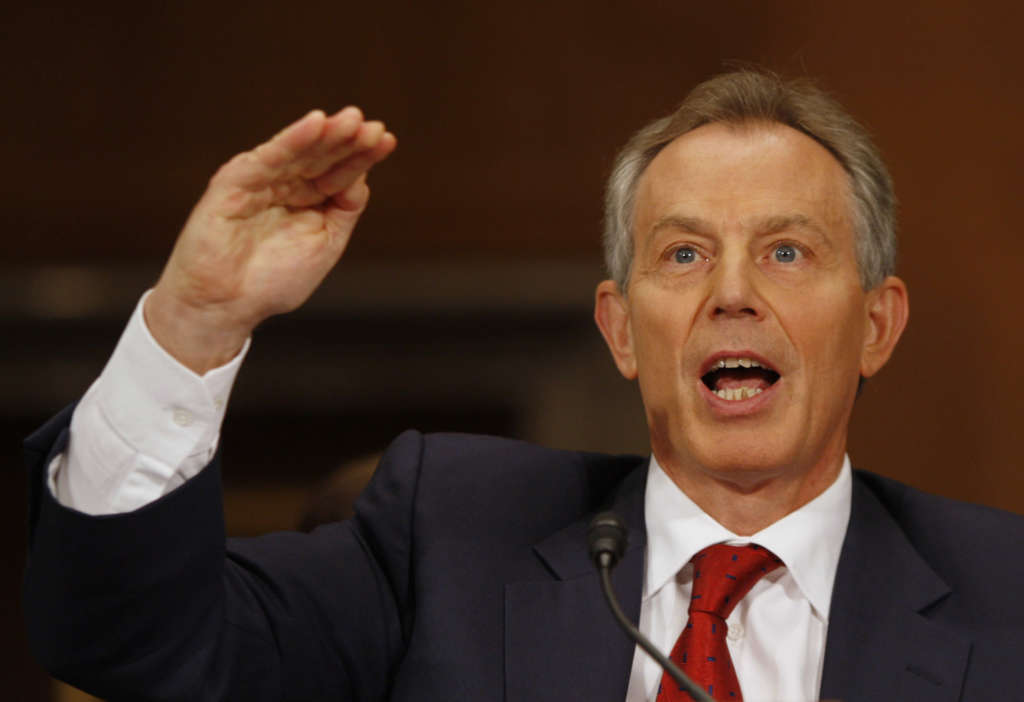London-Thirteen years after the United States and Britain invaded Iraq, the Iraq War Inquiry Committee issued its official report on Wednesday, holding former Prime Minister Tony Blair accountable for joining the invasion before exhausting diplomatic relations and for failing to set adequate plans to deal with the invasion’s aftermath.
The report was the result of a seven-year inquiry, led by retired civil servant John Chilcot, to address public criticism of Britain’s decision to join the war.
Chiclot said that Blair had promised former U.S. President Georges W. Bush to support him in Iraq’s invasion, saying: “I will be with you, whatever”. The report, which consists of around 6,000 pages, also concluded that the legal basis for military intervention was “far from satisfactory,” including flawed intelligence about Iraq’s supposed weapons of mass destruction.
While repercussions of Chiclot’s report cannot be concluded immediately, British MP Alex Salmond, from the Scottish National Party (SNP), said that legal action against Blair must be considered. Salmond was quoted by British media as saying: “In the days, weeks and months ahead, the intimate detail of this report will only implicate further a former Prime Minister who recklessly committed the country to war without collective judgment, and personally failed to ensure there was a plan for delivering a future for the people of Iraq.”
For his part, Blair acknowledged after the report was published that the intelligence on Iraq’s weapons turned out to be wrong. British dailies quoted him as saying: “These are serious criticisms and they require serious answers… I will take full responsibility for any mistakes without exception or excuse.”
The former prime minister defended his position, saying that the world was improved as a result of the removal of late Iraqi President Saddam Hussein.
However, Blair said he regretted that Iraq had become a prey to terrorism. “For all of this I express more sorrow, regret and apology than you may ever know or can believe,” he said.
Lawyers of families of 29 soldiers who died in Iraq said they would need to scrutinize the report before deciding the appropriate legal response.
British daily The Guardian said on Wednesday in the wake of Chiclot’s report: “Since the U.S.-led, UK-backed invasion of Iraq in 2003, estimates of the lives lost to violence vary from a quarter of a million to 600,000. The number of injured will surely be several times that, and the number of men, women and children displaced from their homes is put at between 3.5 and 5 million, somewhere between one in 10 and one in six of the population.”
“Thirteen years on, as the deadly blast in Baghdad last weekend illustrated afresh, the predicament of the Iraqi people remains misery without end,” The Guardian added.
Meanwhile, the White House stressed its support for U.S. President Barack Obama’s view of the Iraq war.
White House Spokesman Josh Earnest said: “I don’t know that anyone in the U.S. government has had an opportunity to evaluate the entirety of the report.”
“The president’s longstanding opposition to the war in Iraq is well known … (He) has been dealing with the consequences of that fateful decision for the entirety of his presidency and future presidents will likely do the same,” Earnest noted during a press briefing on Wednesday.
However, Earnest highlighted important strategic relations between the U.S. and Britain.
“It is important that the U.S. learn the lessons from those past mistakes,” said Earnest. “But what is also true is that the UK and U.S. have a special relationship and the ability of our leaders to work together … has made our countries more prosperous and more safe and I expect that relationship will endure regardless of who is in power.”
